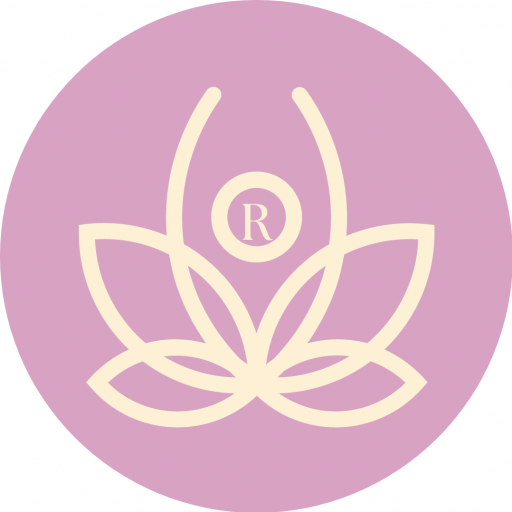Stress: the feeling of being overwhelmed or unable to cope with mental or emotional pressure, it is how we react and how we react to a situation.
When someone books in for a treatment they often sight stress as a factor, or even the main reason that they are seeking help. For such a small word, the impact of stress, the causes of stress and the way it can affect us can be huge. Stress is not a one size thing, some of us cope with stress, some of us crumble, others thrive on it. At different times we may react in different ways, when tired or recovering from sickness we may have more negative reactions to stress then when we are feeling well and in the best of health.
Stress has a physical reaction in our bodies. You might feel it –have a shortness of breath, your breathing pattern might change, you might have headaches, even chest pain. Internally you are experiencing a chemical release of hormones including adrenaline and cortisol – this is known as the ‘fight-flight’ reaction and is the primal survival strategy. Think back to our ancestors, when needing to protect themselves from physical danger, the chemical release heightens senses, pushes blood to your major muscles , more blood is pumped to your heart – you feel instantly stronger and ready to react to the imminent danger. Unfortunately, it is not just imminent danger that can cause an increase in adrenaline. In the modern world stress can also be triggered by more everyday activities, a job loss, moving home, divorce, the death of a loved one. Sadly, these types of stresses do not wane as much as when we ‘ran away from a dangerous animal,’ when once the danger subsided so would the adrenaline.
Cortisol, the other fight-flight hormone, also raises when we are in danger or in difficult situations. With modern life filled with stress triggers, the levels of both of these hormones may not drop to calmer levels and we find ourselves at a permanent heightened level of stress. Some people can live with it without realising, until they experience a bigger reaction, and it becomes more apparent, such as high blood pressure, mood swings, weight gain – just to name a few.
You might find it hard to concentrate or make decisions, you have a constant worry which keeps you awake at night. Maybe you are a nail biter, or do you find yourself fiddling with clothing, tearing paper. To cope, many people turn to stimulants such as smoking, drinking alcohol and making poor food choices. All relatively simple things to turn around when you are in a good frame of mind or relaxed, but when you are stressed… eek.
So, what can you do? Avoid stress! Not always possible, but you can alter your mindset and choose how you react to some situations. Do you find yourself getting angry when someone cuts you up on the road? You could explode and confront them, but what will that achieve? 2 angry people clashing. Or you could choose to let them get on their way, turn up your favourite music and know you are having a better day than them! Do you constantly tell your child to tidy their bedroom? Does it make you mad that you have to do this 10 x a day? Firstly, does it really matter? You might like the house to be pristine, but this is their space. As long as you can close the door and don’t have to see it, does it really matter. It might do, but how important is it. Is it worth falling out with them, is there another way you could tackle the situation?
Take something bigger than those examples, moving home. Always a stressful situation from start to finish. One ‘trick’ I like to use with clients is to visualise themselves in their new home. At the early stages when they are looking for it at, imagining what they need, what they would like it to have, and location gives them plan. Some like to create a physical vision board, some a list and some just have the image in their head. Once they have found their dream home and the decision to move has been made, they then have to tackle to finances and legal side. This is always a very stressful time; your dream is now in someone else’s hands. It’s hard to maintain your humour at this stage, but if you go into with the mindset that ‘what will be will be’ and trust the process, it is easier. At times the professionals are not working to the speed you would like, communication is key (isn’t it always) and be clear on your expectations. Ask outright, can they be matched, if not why not. At least if you know you are being unreasonable you are now aware, but if they reassure you all is on track you have some comeback if things are delayed. Ultimately there are some things you cannot control (as a control freak I find this particularly hard to deal with and something I have had to work on) . Control the things you can do. The packing, change of address admin, catching up with friends – maybe you are moving away from the area and won’t see them as much – use any delays to your advantage. And when you are settled in your dream home, sit back and saviour the time.
Earlier I mentioned that stress can take longer to wane or be triggered more quickly and often when we are not in the best of health. This is where holistic therapies can help. Clients who have regular treatments report they feel much more able to deal with difficult situations than when they don’t have treatments. Frequently someone will have seen me when stress is heightened, and we stabilise this with hands on treatments and lifestyle adjustments within the lifestyle program. Unfortunately, some then think they are ‘fixed’ and stop treatments. For the ones wo embrace the changes in their lifestyle – they may well be fixed, and the impact of stressful situations is much less, and they are able to cope. For others sadly this is not the case and I see them back in the treatment room 6 -18 months later when life is once again overwhelming. Some clients decide they need ongoing support, especially if the stress trigger is something that they cannot change or influence (long-term caring for a loved one, or their own illness). In those cases, I offer a range of holistic treatments which are adapted to each individual needs – the type of treatment and the frequency is decided in collaboration and is an ongoing relationship between us.
Stress may not always be a bad thing. There is such a thing as good stress, excitement when we are challenged, pushing ourselves out of our comfort zone, in both of these you will have felt the adrenaline rush. It drives us to perform better, to be stronger, resilient. But as with everything there needs to be a balance, a yin and yang, an activity and recovery, awake and asleep. There can be too much of a good thing whatever it is.
Check out this link to my 30-day stress challenge. In it you will receive 30 days of emails (don’t panic they are short) with a tip and advice on how to cope with different stress triggers and much more.
I hope it helps! Let me know how you get on – email

